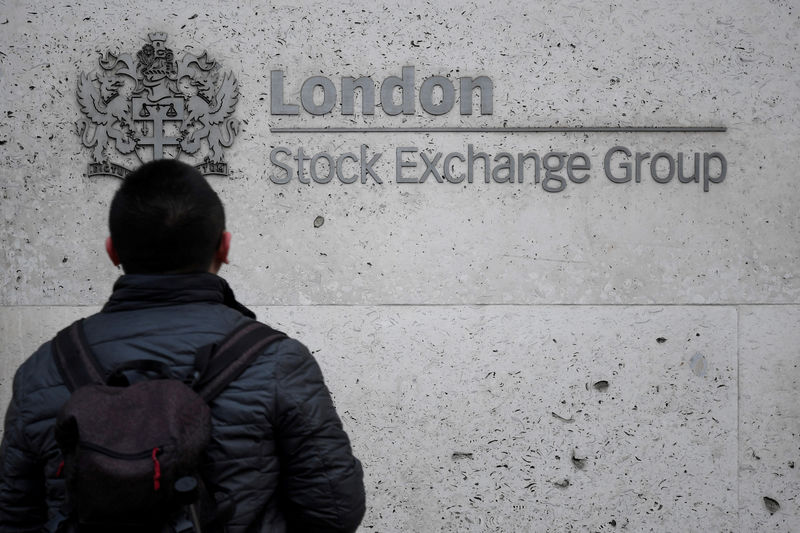By Pamela Barbaglia
LONDON (Reuters) - Once shunned due to intense public scrutiny and competition from corporate buyers, private equity firms are increasingly targeting listed companies in Europe, shrugging off forecasts of a regional economic slowdown.
European buyouts have hit a 12-year record of $31.6 billion so far this year, of which almost half has been invested in listed companies, Refinitiv data shows, with industry buyers deterred by geopolitical concerns and global slowdown fears.
Although these worries have led to a 67 percent fall in European mergers and acquisitions (M&A) activity in the first quarter, buyout firms - entrusted with record amounts of cash to invest - say they cannot stay on the sidelines.
"Whether it's a good or bad time, the industry's job is to put money at work," said Warburg Pincus European head Daniel Zilberman. Warburg Pincus is leading a $3.4 billion deal to buy British satellite operator Inmarsat with Apax Partners.
So-called take-private deals, where a public company is bought and delisted, hit their highest level last year since a previous boom in 2006–2007, a report by Bain & Company showed, with 170 such deals clinched globally.
Of $227 billion of public-to-private deals last year, $71 billion were in Europe and $118 billion in North America.
This is continuing into 2019, with a consortium of Hellman & Friedman and Blackstone (NYSE:BX) buying German classifieds group Scout24 in a 5.7 billion euro deal which ranks as the biggest private equity takeover of a listed company in Germany.
"Private equity funds are not scared of a downturn. They have the flexibility to underwrite any macro concern in their pricing model and holding periods. In fact, they can take a long-term approach if market conditions suddenly deteriorate," Laurent Haziza, global co-head of financial sponsors at Rothschild, said.
This confidence is backed by cash swelling U.S. private equity coffers, highlighted by Blackstone's latest $22 billion buyout fund.
And European rivals are keeping up the pace as London-based Cinven looks to raise 10 billion euros for its seventh fund, sources said, well beyond an initial target of 8 billion euros, while CVC raised a record 16 billion euros in 2017.
For an interactive version of the below graphic, click here https://tmsnrt.rs/2Xh6I6F.
"UNDER PRESSURE"
Private equity investors say European mid-cap companies - especially those trading in London's FTSE 250 index which has been on a downward trajectory for the past 12 months - have become cheaper due to macro-economic jitters, with executives more receptive to their proposals as a result.
"Most CEOs are under pressure as they need to prepare for a downturn and consider ways to keep funding growth. They are increasingly turning to private equity firms to discuss their options," Luca Bassi, a managing director at Bain Capital Private Equity, said.
Bassi also said the perception of private equity funds has changed due to their growing focus on piecing together global industry leaders.
"We are part of the same ecosystem," he said, pointing to Bain's expertise in digital payments. "The days of corporate raids have gone. We can help companies navigate the recession when it hits."
But bankers and analysts say some buyout funds may regret paying top dollar to buy listed companies.
"The biggest risk for private equity funds is a contraction of valuation multiples at exit," Zilberman at Warburg Pincus said. "At the moment assets are priced at very high multiples, but interest rates are rising, the cost of capital is going up and multiples will need to come down over time."
The average purchase price for leveraged buyouts in Europe has surged to nearly 11 times core earnings (EBITDA) in 2018, above levels leading up to the global financial crisis, data from LCD, part of S&P Global (NYSE:SPGI) Market Intelligence, showed.
In the United States valuations have hovered at an all-time high of roughly 10.6 times EBITDA since 2017.
(GRAPHIC: Average purchase price multiple for all PE buyouts - https://tmsnrt.rs/2XiKBwC)
"You need to create real strategic value to justify the kind of multiples in the market and meet your return targets," said Zilberman of Warburg Pincus. "But you also need to price in a recession and prepare for the worst."
In the boom years of 2006-2007, when global private equity investments surged to roughly $650 billion, the industry relied on excessive debt to fund mega deals and then extracted returns through financial engineering, resulting in companies struggling to stay afloat and some funds going out of business.
Although similar fears have started to surface given the combination of record asset prices, abundant capital and an uncertain economic backdrop, the industry is so far unfazed.

"Higher risk is a function of higher returns. Big funds are designed to take on more risk, and often over longer time horizons," JP Morgan's co-head of EMEA M&A Dwayne Lysaght said.